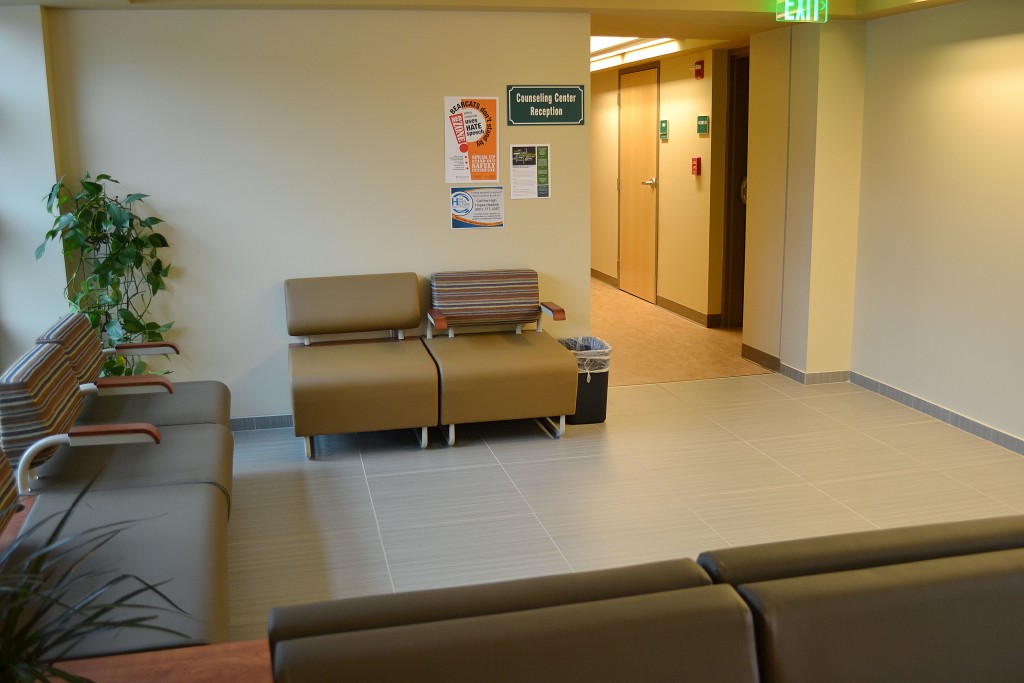
The Binghamton University Counseling Center (UCC) has begun to reallocate resources and is changing the support services it offers to students.
The UCC now provides individual counseling which emulates the brief therapy model, a change from the previous model of individual counseling, which had no restrictions on how long students could use it. According to the website, brief therapy is short-term and “focused on helping students to resolve or effectively manage a specific problem or challenge, or to make a particular desired change.”
The UCC will continue to offer same-day urgent counseling and group counseling. According to Johann Fiore-Conte, the assistant vice president for health and wellness, this new model will allow the UCC to provide services to more students.
“It’s about being equitable to new students, which means creating more initial meetings to discuss options,”Fiore-Conte said.
Students requiring long-term or open-ended therapy will be referred to outside resources after their needs are assessed. Counselors will tailor referrals to meet students’ financial, transportation and insurance limitations, as well as address any individualized concerns. Mark Rice, the clinical director of the UCC, said that counselors will still be a resource for the students if needed.
“It’s difficult for a counselor to set up an appointment for a student directly,” Rice said.”But they will follow up with the student to make sure it is going well and help them prepare for the transition.”
Both Fiore-Conte and Rice said that the new service format would allow the UCC to reduce wait time for students. Previously, those seeking care needed to sign up for a wait list before getting an appointment, since the counselors were frequently fully booked with current patients. The brief therapy model will create time for new students and allow for a larger turnaround and a shorter appointment wait.
“We’re trying to get students in more quickly and assess their needs,” Fiore-Conte said. “Then we can connect them with resources either within the UCC or an outside referral.”
Some students who have been utilizing the counseling center’s longer-term treatment have expressed concern. According to one student, who chose to remain anonymous, the counseling center had always been a great resource because it was convenient, free and centrally located. Referring students off-campus, they said, might discourage some from reaching out.
“Therapy in general is super expensive since most psychiatrists and psychologists don’t accept insurance, so it’s pretty disappointing to me that they wouldn’t be more interested in the welfare of the student body,” they said. “The only reason I started getting regular help was because of how accessible the counseling center was, so I feel like a lot of students will be deterred from receiving any sort of therapy if they’re just referred to places off-campus.”
Other students were angered by the change. Jessica Dunn, a junior triple-majoring in sociology, Latin American and Caribbean studies and Africana studies, said the University has an obligation to provide comprehensive counseling services to its students.
“I think it’s outrageous,” Dunn said. “Studies show that around one in six college students suffer from anxiety, and depression is the number-one reason students drop out of school. How can the University cut back on services so critical to students’well being? And even more important, how can they expect to increase enrollment and cut mental health resources? It’s short-sighted and unreasonable.”
According to Fiore-Conte, the change stems from a need to redistribute the current UCC budget. The UCC is funded by the student-health fee, which also supports campus resources like 20:1, Real Education About College Health (REACH) and Decker Health Services. The fee is capped by SUNY, and schools are unable to increase it autonomously outside of this limitation.
Although more funding does come in from increased enrollment because of more students paying the student-health fee, Fiore-Conte said that this is not enough to support student need.
“The student demand is increasing at a rate that out-paces the increasing student population,” Fiore-Conte said. “A larger percentage of the student body is coming in, not just more students because of greater enrollment.”
Rice added that the UCC has expanded, having added four new counselors and a mental health coordinator over the past four years. According to him, the UCC will still be providing comprehensive services to students and will better serve the campus population overall.
“Students that come here will receive a consultation,” Rice said. “But they will then be partnered with the best care that also suits their needs and supports them.”


